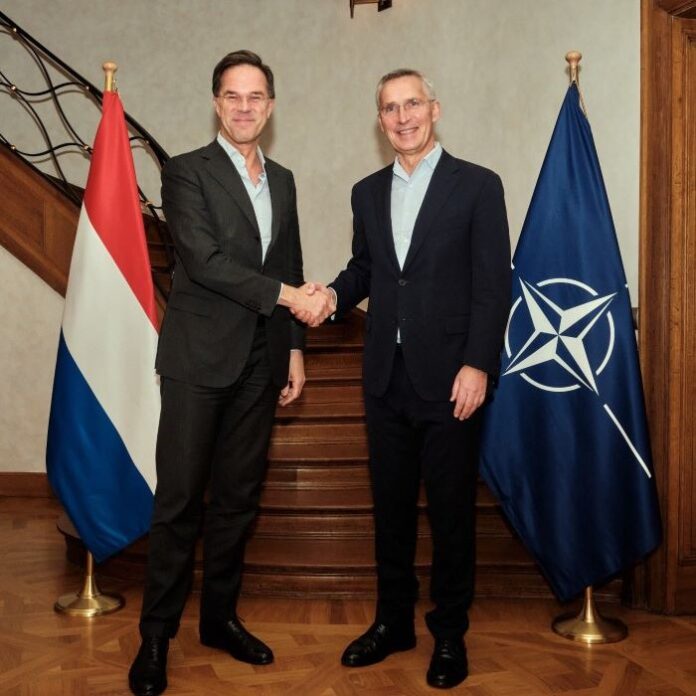Dutch prime minister Mark Rutte emerged as the frontrunner to succeed Jens Stoltenberg at the helm of NATO after receiving the backing of the United States, the United Kingdom, France and Germany.
Rutte is currently holding the position of prime minister in the Netherlands as caretaker after deciding to step down from office last July and will leave the position as soon as a new coalition government is installed. Stoltenberg is set to leave his role of NATO secretary general in October. The new secretary general is elected by consensus of all 31 members.
Rutte received an important endorsement from the US, the leading member of the alliance, with an US official stating that “President [Joe] Biden strongly endorses PM Rutte’s candidacy to be the next Secretary General of NATO.”
This important statement was followed by similar support from other crucial members. The British Foreign Office stated that Rutte is well-respected and has serious credential in defence and security, while a senior French official added that President Emmanuel Macron has been championing Rutte for the position from the beginning. Finally, a German government spokesperson also confirmed Chancellor Olaf Scholz’s support.
Allegedly, Rutte has the support of around 20 members of the alliance. However, it may still be too early for an official confirmation of the Dutchman in the role. Hungary and Turkey may be against him. Poland is yet to official support any candidate and may support a name from the Baltic region. Apparently both Estonian Prime Minister Kaja Kallas and Latvian Foreign Minister Krisjanis Karins have expressed their interest on the role.
The next NATO secretary general will have to deal with a potential second presidential term by Donald Trump, who had a fraught relationship with the alliance, even taunting that he will not follow Article 5 if invoked by a European country. Article 5 of NATO charter makes an attack on a NATO member an attack to all the alliance. Trump was also very vocal about military expenditure, urging members to spend more.
While in office, Rutte had a good relationship with Trump. However, he cut defence spending due to austerity measure. Ever since the Ukrainian war, he vowed to increase defence spending, almost reaching the required 2% in 2024. Rutte recently also told fellow European leaders to “stop moaning and whining and nagging” about the possible return of Trump and work on European solutions to bolster defence and keep up with Ukrainian aid.

